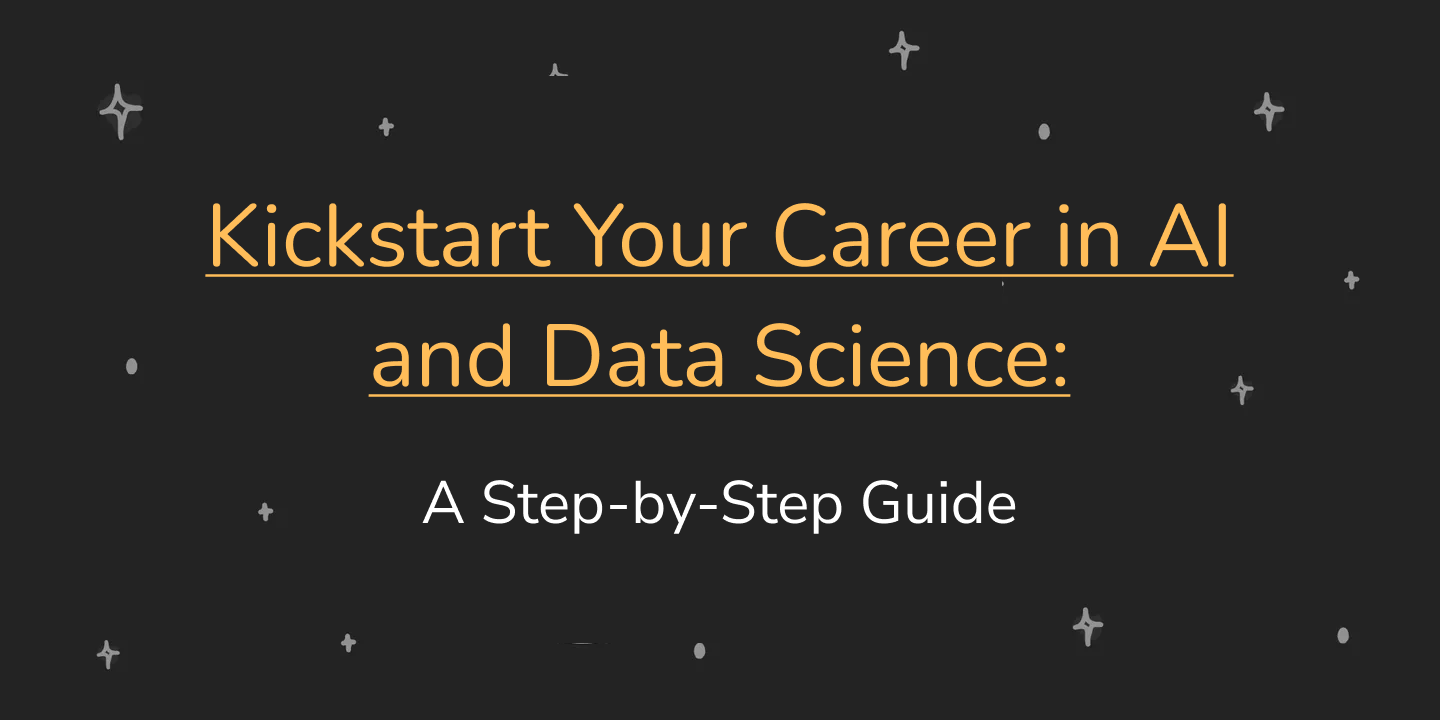The fields of Artificial Intelligence (AI) and Data Science are booming, with countless opportunities waiting for those with the right skills. Whether you’re a student, a working professional, or someone looking to switch careers, entering these fields might seem daunting at first. But with the right approach and resources, you can successfully embark on a rewarding journey.
Before diving deep into AI and Data Science, it’s important to have a solid foundation in the following areas: Once your foundation is strong, you can start learning AI and Data Science-specific skills. Focus on: There are numerous platforms offering comprehensive AI and Data Science courses, ranging from beginner to advanced levels. Some highly recommended options are: Certifications from well-known platforms can boost your resume and prove your expertise to potential employers. Practical experience is key in AI and Data Science. Start with personal projects to apply what you’ve learned, such as: Document your projects on GitHub to showcase your work to employers. Join AI and Data Science communities to learn from others, network, and stay updated on industry trends. Engage with communities on platforms like: Networking with professionals in the field can open doors to job opportunities, mentorship, and collaborations. Look for internships or entry-level jobs to gain hands-on experience. Many companies offer internships in AI or Data Science, allowing you to apply your skills in a professional setting while learning from experienced mentors. You can explore roles such as: These positions are great stepping stones to more specialized roles in AI and Data Science. AI and Data Science are fast-evolving fields. Make sure to stay up to date with the latest advancements, tools, and technologies by following: This will help you stay relevant and continuously grow your expertise. Embarking on a career in AI and Data Science is both exciting and rewarding. By building a solid foundation, continuously learning, practicing real-world projects, and staying active in the AI community, you can carve out a successful path in this dynamic field. The future of AI holds limitless opportunities, and by taking the first steps now, you’ll position yourself to be at the forefront of technological innovation.
Here’s a step-by-step guide to help you start your career in AI or Data Science:

1. Build a Strong Foundation
2. Learn Key AI and Data Science Concepts
3. Take Online Courses and Certifications
4. Practice with Real-World Projects
5. Leverage AI and Data Science Communities
6. Explore Internship or Entry-Level Roles
7. Stay Updated with Industry Trends
Conclusion: Your Future in AI and Data Science
